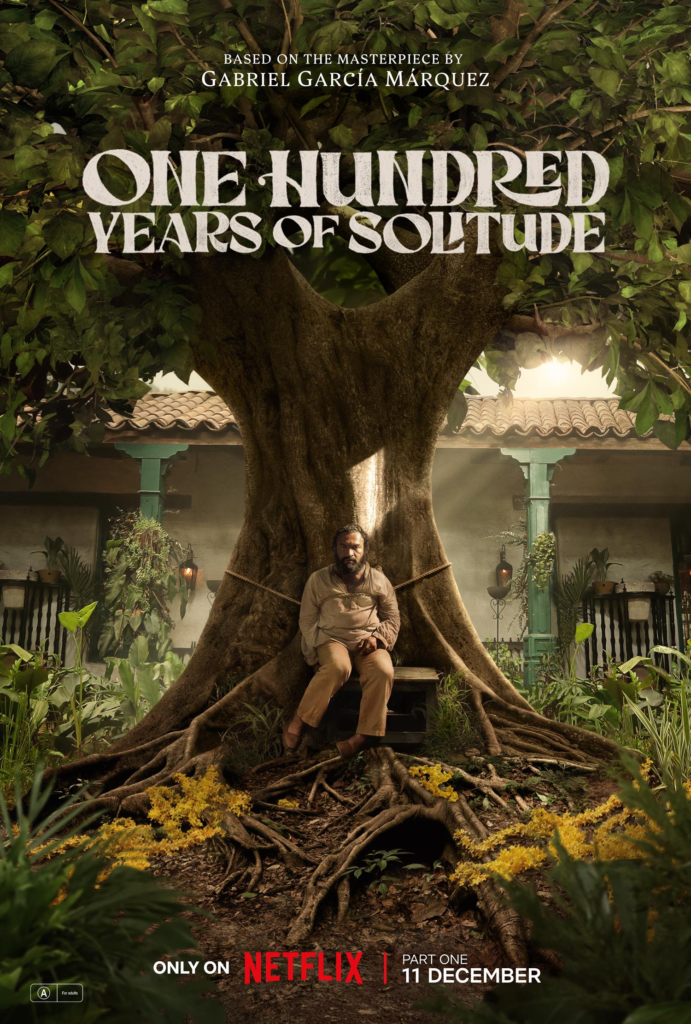One Hundred Years of Solitude Christian Review

If there’s a single word that comes to mind when reflecting on the One Hundred Years of Solitude TV adaptation, it’s “ambitious.” Adapting Gabriel García Márquez’s magnum opus is not for the faint of heart. Márquez himself thought it couldn’t—and probably shouldn’t—be done. His novel doesn’t just tell a story; it creates an entire world, one where the boundaries between reality and fantasy blur effortlessly. To bring that world to the screen isn’t just a technical challenge but a philosophical one. Yet here we are, and surprisingly, this series does more than merely try. It dreams big, reaching for the essence of Márquez’s masterpiece with reverence and care.
But can reverence ever be enough?
Entering Macondo: A World Both Familiar and Foreign
From the first moments, it’s clear the creators spared no expense in bringing the town of Macondo to life. The visual fidelity is staggering, each frame saturated with the lushness of Márquez’s imagination. The streets, the houses, the surrounding jungle—they don’t feel like sets. They feel alive, breathing with a rhythm that suggests this world has existed forever and will endure long after the credits roll.
And yet, as beautiful as the adaptation is to look at, something feels ever so slightly off. There’s a strange tension here, an almost tangible discomfort between the medium and the message. The actors—wonderful as they are—can’t quite shake the sense of performance. Their words are charged, their movements precise, yet the magic that envelops Márquez’s prose doesn’t fully translate.
Perhaps that’s unfair criticism. After all, magic realism on the page works because it meets you halfway. It invites your imagination to do the heavy lifting. A man ascends to heaven while hanging laundry, and you’re left to fill in the spaces between the words. On screen, though, everything is literalized. The miracles are depicted in painstaking detail, but they lose the quiet reverence they carried in the novel.
Family, Faith, and the Weight of Generations
At its heart, One Hundred Years of Solitude isn’t just about a town or even about its magical happenings. It’s about family—its triumphs, failures, and the cyclical patterns that seem impossible to escape. The Buendía family, with its sprawling genealogy and interconnected lives, embodies both the beauty and the tragedy of human existence.
As a Christian viewer, it’s impossible not to see parallels with biblical narratives of family and legacy. The Bible is full of generational stories—of Abraham’s descendants, of King David’s line, of the Israelites wandering in the wilderness because of choices made long before their time. Márquez’s Buendías feel like they could have been plucked from these pages, their lives marked by blessings and curses, faithfulness and folly.
The series captures this aspect well. There’s an almost spiritual weight to the family’s story, an acknowledgment of how the past shapes the present and how choices ripple across time. It’s a theme that resonates deeply, particularly for those who see life as part of a larger, God-ordained narrative.
The Magic Problem
Magic realism is notoriously hard to define, but Márquez’s work epitomizes it. In his hands, the extraordinary doesn’t feel extraordinary at all—it’s just part of the fabric of life. A rain of yellow flowers isn’t a spectacle; it’s a quiet moment of beauty and grief. A man with a pig’s tail isn’t a curiosity; he’s a tragedy, the inevitable result of a long-forgotten curse.
The TV adaptation struggles with this. It’s not that the magical elements aren’t there—they are, and they’re rendered beautifully—but they lack the subtlety that makes them meaningful. Watching Remedios the Beauty ascend to heaven is a visual treat, but the moment doesn’t carry the same emotional weight as it does in the book. It feels like something you admire rather than something you feel.
And maybe that’s the inherent limitation of the medium. Prose allows for ambiguity, for suggestion. Film and television, by their nature, are more concrete. They show rather than tell, and in doing so, they risk losing the ineffable quality that makes magic realism so powerful.
Parallels to Our Own Stories
One of the surprising strengths of this adaptation is how it invites viewers to reflect on their own lives. The Buendía family’s story, with its cycles of sin and redemption, isn’t just Márquez’s creation—it’s a mirror. How often do we repeat the mistakes of those who came before us? How often do we find ourselves caught in patterns we can’t quite escape?
For Christians, these questions have particular resonance. The Bible speaks often of generational sin, of the ways in which the choices of one generation affect the next. But it also speaks of redemption, of breaking free from those cycles through God’s grace. Watching the Buendías struggle and stumble, you can’t help but think of your own family, your own story, and the hope that comes from knowing that cycles can be broken.
Prestige Television and the Weight of Expectations
It’s impossible to view this series in isolation. It comes at the tail end of a year filled with ambitious adaptations of “unfilmable” novels, from The Sympathizer to Interior Chinatown. Each of these projects has faced the same challenge: how to honor the source material while making it accessible to a new audience.
In many ways, One Hundred Years of Solitude stands out as one of the most successful of the bunch. It doesn’t shy away from the complexity of Márquez’s vision, nor does it try to simplify it for the sake of mass appeal. Instead, it leans into the difficulty, embracing the novel’s density and nuance.
But with ambition comes risk. For some viewers, the series may feel slow, even impenetrable. It demands patience and attention, qualities that are often in short supply in the era of binge-watching. And while it rewards those who stick with it, there’s no denying that it’s a challenging watch.
A Christian Perspective: Where Do We Find God in This Story?
Márquez’s world is not explicitly Christian, but it is deeply spiritual. His characters wrestle with questions of meaning, purpose, and fate—questions that resonate with anyone who sees life as more than a series of random events.
For Christians, the series offers an opportunity to reflect on how God’s hand can be seen even in stories that don’t explicitly name Him. The Buendías’ struggles with sin and redemption, their search for meaning in the midst of chaos, feel deeply human—and deeply biblical.
At the same time, the series serves as a reminder of the limits of human wisdom and effort. The Buendías, for all their strength and ambition, are ultimately powerless to escape the cycles that bind them. It’s a sobering reflection on the need for grace, for a power greater than ourselves to intervene and set things right.
Final Thoughts: A Beautiful, Imperfect Triumph
In the end, One Hundred Years of Solitude is as much about the attempt as it is about the result. The series doesn’t fully capture the magic of Márquez’s novel, but it comes closer than most would have thought possible.
It’s a work of beauty and ambition, flawed but deeply moving. For viewers willing to engage with its complexity, it offers not just a story but an experience—a chance to step into a world that feels both foreign and deeply familiar.
Rating: 8/10
While not perfect, this adaptation is a remarkable achievement. It honors Márquez’s vision while creating something new and compelling in its own right. For Christians, it’s a thought-provoking exploration of family, faith, and the enduring power of storytelling.






